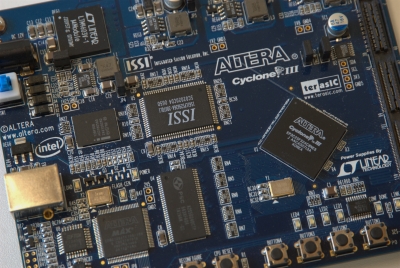Robust Audio Decoding for Erroneous Compressed Audio Streams
Digital TV in vehicles like cars, busses or trains gets more and more popular. However, conventional receivers are not optimized for mobile reception and can be adapted to the new requirements by using techniques like channel estimation and antenna diversity. In case of extremely poor reception the probability of remaining errors in the output data stream (MPEG-2 Transport Stream) is still relatively high. This causes errors in video, audio and synchronization.
Most people are perceiving audio errors as much more annoying than video errors. So the idea of this project is to improve the perceptual audio quality by using concealment strategies either during or after the audio decoding process. The concealment strategies should be optimised for the reception of digital TV mainly DVB-T (Digital Video Broadcasting-Terrestrial) and DVB-H (Digital Video Broadcasting-Handheld) which are transmitted in Germany and many other European countries. The focus lies on both the algorithmical aspect as well as the efficient implementation on programmable devices. A prototyping board with low-cost FPGA is used in this work (see Figure below). The system on the FPGA basically consists of a soft-core processor which is equipped with custom instructions as well as hardware accelerators implemented in VHDL for time-consuming computations.
This project is done in cooperation with the company Hirschmann Car Communication, a leading supplier of digital TV receivers for the automotive industry.

Projektleiter
Ehem. Projektmitglieder
Dr.-Ing. T. Roll
